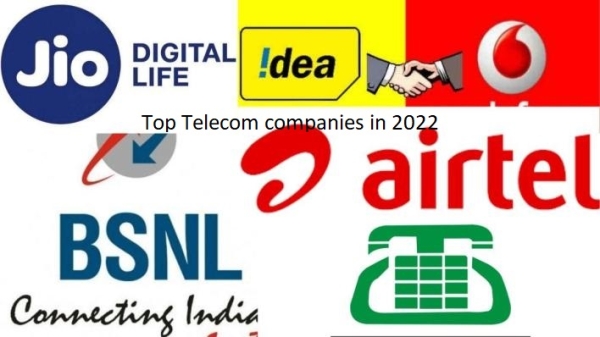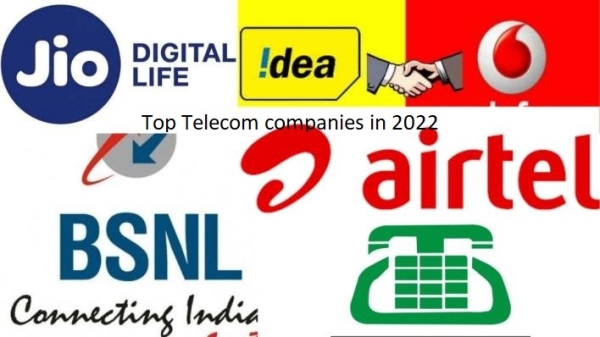India is installing solar powered EV charging stations. Will it work? In February, electric vehicle (EV) ride-sharing platform BluSmart announced a deal with Tata Power to recharge its electric cabs using solar energy, ensuring no fossil fuels are used in their operation. The deal shows a viable path for cleaner and cheaper mobility options. "This makes us a 100% emissions-free company," says Tushar Garg, Co-founder & CEO, BluSmart Charge. "We will be sourcing 30 megawatts (MW) this year from a plant in Bikaner, Rajasthan, which will be used to operate our entire fleet in Delhi-NCR and Bangalore." This concept of solar-power EV charging stations is fairly new. As the name suggests, it involves using solar panels instead of fossil-fuel based energy to generate electricity which is used to recharge EVs. There are many ways to implement this: for example, some companies use batteries to store the power, others generate electricity and feed it into the grid. These developments encourage the hope that public mobility, at least, can be powered by environmentally friendly sources more easily. Such installations lend support to Transparency Market Research's estimate that the global market size for solar-powered EV charging stations was $204.6 million in 2022 and would reach $370.4 million by 2031. Global firms like Tesla (US), Fastened (Netherlands), iSun (US) and Empower Solar (US) have also developed solar EV charging stations and deployed these in their areas of operations. Experts estimate that as people start using more electric vehicles, renewable energy-powered charging stations would become common. According to a report by KPMG, India is expected to have 102 million EVs by 2030, which means there will be a need for 2.9 million public charging stations. The year 2023 saw a 50% increase in EV sales, says CareEdge. According to the Ministry of Power, there were 12,146 public EV charging stations in the country as on February 2, 2024. These numbers indicate the need for alternative sources of energy to charge EVs in a clear way. But the cost of setting up a solar EV charging station is generally higher than that of setting up a conventional charging station. BatX's Singh justifies the cost by stating the durability of the system. He says solar panels have a lifespan of 25 years and the battery the company is using will last for 4-5 years. For BatX, second-life batteries cost 50% lower than new batteries, thus reducing the production costs. source:et
Hyundai's Ioniq 5 spin: A pump-to-plug drive before making mass-market EVs: Hyundai believes the loniq 5 will pave the way for faster adoption of electric mobility in India. While at INR46 lakh, loniq 5 is a premium product, it's a sneak peek into how technologically advanced Hyundai's EVs are and how the carmaker is solving the charging infra and battery puzzle. "Driving the pump-to-plug revolution, Hyundai Ioniq 5 will pave the way for faster adoption of electric mobility and build customer confidence," Unsoo Kim, managing director and CEO, Hyundai Motor India, had said while launching the vehicle at the Auto Expo 2023. Ioniq 5 is Hyundai's first high-performance electric car developed on its electric global modular platform (E-GMP). But every good thing comes at a price. And for Ioniq 5, it starts at INR46 lakh (ex-showroom). Hyundai's another electric SUV, Kona, which was launched in India in July 2019, wears a price tag of INR26 lakh (ex-showroom). So, how is the market responding to the Hyundai Ioniq 5? According to the company, Ioniq 5 has sold 1,400 units in 14 months since its launch, against the targeted annual 500 units. In January 2024, it sold 95 units, compared to 65 units sold by sister brand Kia's EV6, which shares the Ioniq5 platform. To be sure, EV6 is priced above INR60 lakh, as it comes to India as a completely built unit. The Ioniq 5 comes as a completely knocked-down kit and is locally assembled. This saves on import tariffs. source:et
5 Indian pharma stocks with upside potential of up to 41%: Every sector has come into focus at one point of time or the other. Some came into limelight due to the fact of real positive changes in the fundamental operating matrix of that sector. While others came into focus just because of too much liquidity chasing Indian paper. In the case of the pharma sector, after years of consolidation, valuation readjustment and regulatory learning which altogether led to positive change in the fundamentals, the stocks made a comeback. It is almost a period of six to eight years that the industry is back on the list where there are more positive developments than negative. These changes have come after the management of a large number of pharma companies learnt the lesson hard way. The lessons that expansion based on PPT presentations on market growth are probably not the best way to run business, rather ensuring compliance to regulatory requirements is more important. So sectors like pharma which have seen a very long phase of business remodelling and valuation readjustment need to be brought back on the watch list. A number of companies have gone through restructuring, companies which had kept their focus on the domestic market are close to completing their rejig. A number of them kicked off restructuring plans long back, in some cases as long as three to four years back. A few of those plans are close to bearing fruits and some have even successfully got into the international market with Europe as the first entry point. In the case of companies which were focussed on US markets, they have learned to live with lower margins than they had anticipated and a few of them have moved into generics which are more complex and have higher margins. Off late the rate at which the price erosion was taking place in the US generic market has come down. Some of the medicines have even seen a surge in prices, but that surge in price cannot be taken for granted, especially in an election year in the US. But on the whole after a long phase of consolidation, probability is high that prices may remain higher as compared to past. If one looks at the analyst estimates, while they are bullish, price targets are modest in a few stocks. Probably analysts are looking for more confirmation before they increase their target price. But if the way the liquidity is panning out, there is a chance that if things were to turn better, price action might be sharp and even take analysts by surprise. It might be too early to call, but if a re-rating gets momentum once again then they might be better candidates for volatile markets. The stocks collated with data from the latest Stock Reports Plus report dated Mar7th, 2024. Indian Pharma stocks - Upside potential Mar 7, 2024 Latest Avg Score Reco Company Name Analyst Count * Upside Potential % Inst Stake % Market Cap Type Piramal Pharma Strong 4 4 41.5 18.8 Mid Buy Aurobindo Pharma 9 Buy 26 32.1 29.5 Large Lupin 9 Hold 38 17.1 36.0 Large Alembic 8 Hold 16 14.1 15.9 Pharma Large Torrent 7 Buy 30 10.7 14.0 Large Pharma Calculated from highest price target given by analyste source:et
टेलीकॉम खिलाड़ी 3% लाभ के लिए कॉल पर है; ऑटो बिग्गी ने गैस पर 4% की बढ़ोतरी का कदम उठाया: निफ्टी 50 कमजोर खुला और आगे कमजोर हुआ। लेकिन दोपहर में इसने खुद को वापस खींच लिया और लाभ क्षेत्र में समाप्त हुआ। लगातार दूसरे दिन, बाजार किसी भी दिशात्मक पूर्वाग्रह से रहित रहा। निफ्टी 50 में दिन की नकारात्मक शुरुआत देखी गई। यह गिरावट के साथ खुला और फिर दोपहर के कारोबार में कमजोर होकर दिन का निचला स्तर बन गया। दोपहर में बाजार में कुछ सुधार देखने को मिला और कुछ समय के लिए यह सकारात्मक क्षेत्र में चला गया। हालाँकि, यह उन स्तरों से बाहर आ गया। हेडलाइन इंडेक्स अंततः 49.30 अंक (-0.22%) की शुद्ध हानि के साथ बंद हुआ। जबकि बैंकिंग क्षेत्र ने अपेक्षाकृत बेहतर प्रदर्शन किया है, इस दूरसंचार प्रमुख को एक संक्षिप्त समेकन के बाद फिर से तेजी की संभावना दिखाई दे रही है। हालिया मूल्य कार्रवाई से पता चलता है कि स्टॉक को एक बार फिर 50-डीएमए पर अपना समर्थन मिला है, जो 1109 पर रखा गया है। यह समेकन से बाहर निकल रहा है और अपनी तेजी को फिर से शुरू करने के लिए तैयार दिख रहा है। कीमतें ऊपरी बोलिंगर बैंड के ऊपर बंद हुई हैं। इससे बैंड के अंदर अस्थायी खिंचाव होने पर भी एक स्थायी कदम होने की संभावना बढ़ जाती है। 50-अवधि एमए पर समर्थन लेने के बाद व्यापक बाजार के मुकाबले आरएस लाइन ऊंची होती दिख रही है। एमएसीडी ने सकारात्मक क्रॉसओवर दिखाया है। यह अब तेज़ है और सिग्नल लाइन से ऊपर बना हुआ है। आरएसआई ने 14-अवधि के उच्चतम स्तर को चिह्नित किया है। स्टॉक सुधार चतुर्थांश की ओर तेजी से बढ़ रहा है, जो बाद में स्टॉक के सापेक्ष बेहतर प्रदर्शन के चरण की संभावित शुरुआत का प्रतीक है। स्टॉक में रुपये का परीक्षण करने की क्षमता है। आने वाले दिनों में 1210 का स्तर। रुपये से नीचे कोई भी बंद। 1145 वर्तमान तकनीकी सेटअप को नकार देगा। source: et
भारतीय अर्थव्यवस्था की ग्रोथ पर बेस्ट: ये बैंक स्टॉक दे सकते हैं 18% से ज्यादा रिटर्न: सुधार के एक बहुत ही छोटे चरण के बाद, मंगलवार के कारोबारी सत्र में कई पीएसयू बैंक स्टॉक शीर्ष लाभ में रहे। आज बुधवार को वे मामूली कटौती के साथ कारोबार कर रहे हैं और उनमें से कुछ में इंट्राडे रिकवरी देखी गई है। यह दो कारणों से ध्यान देने योग्य है। सबसे पहले, सभी पीएसयू बैंक पिछले पांच महीनों से अच्छे लाभ के साथ बैठे हैं, और तब भी उनमें तेज गिरावट नहीं देखी गई है। दूसरा, मंगलवार को बाजार की चौड़ाई कमजोर रही. बैंक उन सभी क्षेत्रों को पूंजी की जीवन रेखा प्रदान करते हैं जो किसी भी अर्थव्यवस्था का हिस्सा होते हैं, चाहे वह खुदरा ऋण हो या कॉर्पोरेट ऋण। इसलिए जब ये क्षेत्र अच्छा प्रदर्शन करते हैं, तो बैंकों की ऋण वृद्धि अधिक होती है। इसलिए, यदि अर्थव्यवस्था के तेजी से बढ़ने की संभावना है तो कोई रास्ता नहीं है कि बैंक अच्छा प्रदर्शन न करें। बैंकिंग क्षेत्र के दोनों क्षेत्रों से शेयरों की एक टोकरी रखना बेहतर होगा। खुदरा के साथ-साथ कॉर्पोरेट बैंकिंग, इसलिए पीएसयू और निजी क्षेत्र के बैंकों का मिश्रण है। पीएसयू के लिए बुनियादी सिद्धांतों में दशकों के बाद सुधार हुआ है और सड़क ने अभी इसे ध्यान में रखना शुरू कर दिया है, दीर्घकालिक निवेशकों के लिए अवसर मौजूद हो सकते हैं। जहां तक निजी बैंकिंग क्षेत्र का सवाल है, इस बात पर नजर रखने की जरूरत है कि क्या कोई नकारात्मक खबर या कहानी निजी बैंक क्षेत्र पर मजबूत प्रभाव डालने में सक्षम है, यदि नहीं तो शायद जल्द ही वापसी होगी। हालांकि यह पूरी तस्वीर नहीं देता है, फिर भी निजी क्षेत्र के बैंकों के डिलीवरी आंकड़ों पर नजर डालने से यह अंदाजा लगाया जा सकेगा कि नई डिलीवरी आधारित बिक्री अभी भी लंबित हो सकती है या नहीं। हालांकि पीएसयू क्षेत्र में, कम संस्थागत हिस्सेदारी वाले मध्यम आकार के बैंक शायद व्यापार के लिए बेहतर स्थिति में हैं। लेकिन फिर से यह उच्च जोखिम वाले व्यापारियों या निवेशकों के लिए व्यापार है जो बाजार की कहानी के खिलाफ खड़े होने और सामरिक व्यापार करने की क्षमता रखते हैं। एक निवेशक के लिए, निजी बैंकिंग क्षेत्र में सुधार अवसर हैं लेकिन केवल दीर्घकालिक परिप्रेक्ष्य के साथ। बैंकिंग स्टॉक - तेजी की संभावना मार्च 6, 2024 तालिका में खोजें ETMarkets.com बैंक का नाम औसत लक्ष्य मूल्य (रु.) विश्लेषक गणना लक्ष्य बनाम वर्तमान (%) बंद कीमत (रु.) एचडीएफसी बैंक 1,950 41 35.3 1,441 बंधन बैंक 258 27 30.3 198 एयू स्मॉल फाइनेंस बैंक 733 23 28.2 572 उज्जीवन लघु वित्त बैंक 65 14 25.3 52 इक्विटास स्मॉल फाइनेंस बैंक 123 17 22.4 100 कोटक महिंद्रा बैंक 2,070 38 20.7 1,716 इंडसइंड बैंक 1,860 40 20.6 1,542 डीसीबी बैंक 155 20 19.2 130 सिटी यूनियन बैंक 163 21 18.5 138 source: et
4 आईटी स्टॉक जो 24 से 30% के बीच रिटर्न दे सकते हैं: एक प्रतिष्ठित ब्रोकरेज हाउस की दो रिपोर्टें सामने आई हैं, जिसमें उन्होंने दो सेक्टरों की रेटिंग घटाकर अंडरपरफॉर्म कर दी है। एक मेटल और दूसरा आईटी. चूंकि बाजार मुनाफावसूली के दौर में है, इसलिए इन शेयरों में भी गिरावट आई है, इसलिए यह धारणा बनती है कि शायद ब्रोकरेज जो कह रहा है वह सही है। इससे पहले कि कोई इन रिपोर्टों के आधार पर कार्रवाई करे, कुछ सवालों के जवाब देने की ज़रूरत है। सबसे पहले, इस तथ्य को देखते हुए कि यह क्षेत्र दो साल से अधिक समय से खराब प्रदर्शन कर रहा है, अब किसी क्षेत्र की रेटिंग क्यों कम की जाए? अब आइए देखें कि आईटी क्षेत्र में क्या हुआ और क्यों विरोधाभासी खरीदारी का मामला हो सकता है। निफ्टी आईटी इंडेक्स शायद बहुत कम क्षेत्रीय सूचकांकों में से एक है, जो अभी भी अक्टूबर 2021 में छूए गए उच्च स्तर से नीचे है। हां, सेक्टर में कुछ प्रतिकूल परिस्थितियां हैं जिनके बारे में बहुत से लोगों ने नहीं सोचा था कि दो साल पहले ऐसा होगा। लेकिन बड़ा सवाल यह है कि क्या खराब प्रदर्शन का यह दौर खत्म होने वाला है या नहीं। यह कहना जल्दबाजी होगी क्योंकि अल्पकालिक प्रदर्शन के कई कारण हो सकते हैं, लेकिन जिस तरह से शेयरों ने बुरी खबरों पर प्रतिक्रिया दी है और थोड़ी सकारात्मक खबरों के साथ तेजी से बढ़ोतरी देखी है, उन्हें निगरानी सूची में वापस लाना और पूर्वाग्रह को दूर करना उचित हो सकता है। सभी आईटी शेयरों को रंगीन लेंस से देख रहे हैं। चूंकि क्षेत्र मूल्य पुनर्समायोजन की प्रक्रिया से गुजर रहा है, इसलिए यह समझना महत्वपूर्ण होगा कि मूल्यांकन के पुनर्समायोजन की प्रक्रिया में हमेशा अधिक समय लगता है क्योंकि यह कमाई बढ़ने के साथ होता है जो मूल्य आय गुणकों को सामान्य कर देता है। 'खरीदें/होल्ड करें' अनुशंसाओं के साथ निफ्टी आईटी शेयरों की सूची निफ्टी आईटी सूचकांक - ऊपर की ओर संभावना ETMarkets.com मार्च 6, 2024 तालिका में खोजें कंपनी का नाम नवीनतम औसत स्कोर विश्लेषक गणना एलटीआईमाइंडट्री 6 पकड़ना 38 उदाहरण हिस्सेदारी % 1Y रिटर्न % 40.3 14.4 8.9 टेक महिंद्रा 5 पकड़ो 38 30.5 39.2 17.3 कोफोर्ज 5 रेको खरीदना 29 उपरी संभावना % 28.2 79.5 48.3 इंफोसिस 7 खरीदना 41 24.5 46.9 8.6 विश्लेषकों द्वारा दिए गए उच्चतम मूल्य लक्ष्य से गणना की गई source:et
32% तक की बढ़त क्षमता वाले 5 कृषि रसायन स्टॉक: हालाँकि वे लंबे समय से सूचीबद्ध थे, कृषि रसायन क्षेत्र में भारतीय कंपनियों को सड़क पर वास्तविक ध्यान केवल चार साल पहले मिला। जैसे ही कई टेलविंड्स घटनास्थल पर दिखाई दिए, पूरे सेक्टर की मजबूत री-रेटिंग हुई। आमतौर पर, जब किसी क्षेत्र की दोबारा रेटिंग की जाती है तो ऐसा होता है कि मूल्यांकन समय से पहले हो जाता है और बहुत सारी निगाहें उस क्षेत्र पर नजर रखती हैं। इसलिए, अगर थोड़ी सी भी निराशा है, तो बिक्री का दबाव भी उतना ही अधिक है। कृषि रसायनों के मामले में कुछ वास्तविक समस्याएं थीं जो पुन: रेटिंग के तुरंत बाद सामने आईं। चीनी कंपनियां अतिसक्रिय और डंपिंग हो गई हैं, वैश्विक स्तर पर इन्वेंट्री का स्तर कुछ क्षेत्रों के लिए बहुत ऊंचे स्तर पर पहुंच गया है। चूंकि हर व्यवसाय का एक चक्र होता है, इसलिए जब व्यवसाय चक्र नीचे हो तो स्टॉक को अपनी निगरानी सूची में लाना सार्थक होता है। अधिकांश व्यवसायों में उतार-चढ़ाव का चक्र चलता रहता है। सवाल यह है कि क्या उतार-चढ़ाव प्रकृति में चक्रीय हैं या वे किसी एक घटना के कारण सामने आए हैं। यदि वे प्रकृति में चक्रीय हैं तो क्या चक्र जल्द ही घूमने की संभावना है या नहीं? किसी एक घटना के मामले में तो क्या उस घटना का असर ख़त्म होने वाला है या गहरा असर पड़ेगा या नहीं? कृषि रसायन क्षेत्र के मामले में दोनों का मिश्रण है, इसमें चक्रीयता का एक तत्व है क्योंकि यह कृषि जैसे क्षेत्रों का ध्यान रखता है जहां मौसमी है और यह कृषि रसायन व्यवसाय में चक्रीयता का एक तत्व लाता है। इसके अलावा ओवर इन्वेंट्री के मामले में भी वैश्विक स्तर पर उद्योग को परेशान करने वाली एक घटना हुई है। क्या यह खत्म हो जाएगा, हालांकि ऐसे उद्योग में कुछ भी कहना जल्दबाजी होगी जहां चीन प्रमुख खिलाड़ी है, लेकिन निश्चित रूप से उन्हें निगरानी सूची में वापस लाना सार्थक होगा। source :et
स्टॉक रडार: वी-गार्ड 6 महीने के एकीकरण से टूटकर नई ऊंचाई पर पहुंच गया; लघु अवधि के व्यापारी 400 के स्तर से ऊपर के संभावित लक्ष्य के लिए स्टॉक खरीद सकते हैं: वी-गार्ड स्टॉक को दैनिक चार्ट पर 280 के स्तर से ऊपर समर्थन मिला। हालाँकि, फरवरी के आखिरी सप्ताह में इसमें तेजी आई, जिससे स्टॉक को 6 महीने के लंबे समेकन से बाहर निकलने में मदद मिली। फरवरी के अंतिम सप्ताह में स्टॉक ने 335 रुपये के अपने पिछले स्विंग हाई से ब्रेकआउट देखा। 4 मार्च 2024 को यह 350 रुपये की रिकॉर्ड ऊंचाई पर पहुंच गया वी-गार्ड इंडस्ट्रीज लिमिटेड, घरेलू उपकरण उद्योग का एक हिस्सा, फरवरी 2024 में 6 महीने के समेकन रेंज से बाहर निकल गया है और मूल्य कार्रवाई से पता चलता है कि आगे बढ़ने की गुंजाइश है। विशेषज्ञों का सुझाव है कि अल्पकालिक व्यापारी अगले 2-4 महीनों में 400 के स्तर से ऊपर के संभावित लक्ष्य के लिए स्टॉक खरीदने पर विचार कर सकते हैं। 9 अगस्त, 2023 को स्टॉक 335 रुपये के रिकॉर्ड उच्च स्तर पर पहुंच गया, लेकिन गति बनाए रखने में विफल रहा। यह एक सीमित दायरे में चला गया और इसमें समय-समय पर सुधार हुआ। वी-गार्ड स्टॉक को दैनिक चार्ट पर 280 के स्तर से ऊपर समर्थन मिला। हालाँकि, फरवरी के आखिरी सप्ताह में इसमें तेजी आई, जिससे स्टॉक को 6 महीने के लंबे समेकन से बाहर निकलने में मदद मिली। फरवरी के अंतिम सप्ताह में स्टॉक ने 335 रुपये के अपने पिछले स्विंग हाई से ब्रेकआउट देखा। 4 मार्च 2024 को यह 350 रुपये की रिकॉर्ड ऊंचाई पर पहुंच गया। मूल्य कार्रवाई के संदर्भ में, स्टॉक 5-डीएमए से नीचे लेकिन दैनिक चार्ट पर 10,30,50,100 और 200-डीएमए से ऊपर कारोबार कर रहा है। दैनिक सापेक्ष शक्ति सूचकांक (आरएसआई) 70.5 पर रखा गया है। 70 से ऊपर आरएसआई को ओवरबॉट माना जाता है। इसका तात्पर्य यह है कि स्टॉक में गिरावट दिख सकती है। 8 9 अगस्त, 2023 को स्टॉक 335 रुपये के रिकॉर्ड उच्च स्तर पर पहुंच गया, लेकिन गति बनाए रखने में विफल रहा। यह एक सीमित दायरे में चला गया और इसमें समय-समय पर सुधार हुआ। वी-गार्ड स्टॉक को दैनिक चार्ट पर 280 के स्तर से ऊपर समर्थन मिला। हालाँकि, फरवरी के आखिरी सप्ताह में इसमें तेजी आई, जिससे स्टॉक को 6 महीने के लंबे समेकन से बाहर निकलने में मदद मिली। अजीत ने कहा, "6 साल के लंबे समेकन चरण से बाहर निकलने के बाद, वी-गार्ड पिछले छह महीनों से धीरे-धीरे ऊपर चढ़ रहा है।" मिश्रा, एसवीपी - तकनीकी अनुसंधान, रेलिगेयर ब्रोकिंग लिमिटेड। source:et
Telecom player is on call for 3% profit; auto biggie steps on the gas to rise 4%: Nifty 50 opened weak and weakened further. But it pulled itself back up in the afternoon to end in the profit zone. For the second day in a row, the markets continued to remain devoid of any directional bias. The Nifty 50 saw a negative start to the day. It opened lower and then weakened to form the day's low point in late afternoon trade. The markets did see some recovery in the afternoon and also went briefly into the positive zone. However, it came off from those levels. The headline index finally closed with a net loss of 49.30 points (-0.22%). While the banking space relatively outperformed, this telecommunication major is seeing a strong possibility of resumption of an up-move following a brief consolidation. The recent price action shows that the stock found its support once again at the 50- DMA, which is placed at 1109. It has seen moving out of the consolidation and looks to be set to resume its up-move. The prices have closed above the upper Bollinger band. This increases the possibility of a sustainable move happening even if there is a temporary pullback inside the band. The RS line against the broader market is seen inching higher after taking support at the 50- period MA. The MACD has shown a positive crossover. It is now bullish and stays above the signal line. The RSI has marked a fresh 14-period high. The stock is rolling fast towards the improving quadrant, which subsequently marks a potential beginning of a phase of relative outperformance of the stock. The stock has the potential to test Rs. 1210 levels over the coming days. Any close below Rs. 1145 would negate the current technical setup. source: et











Mar 08 2024, 09:16
- Whatsapp
- Facebook
- Linkedin
- Google Plus
0